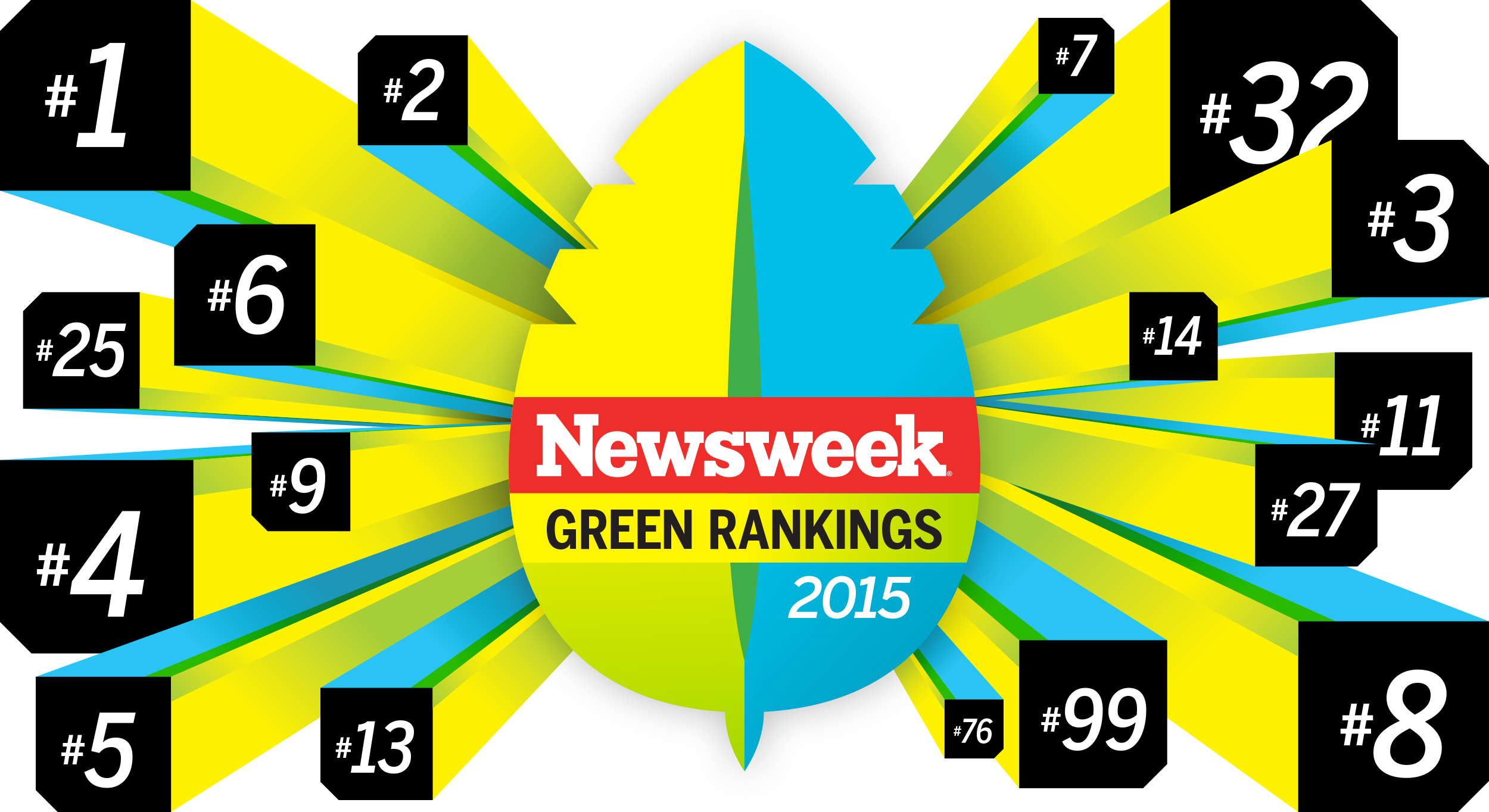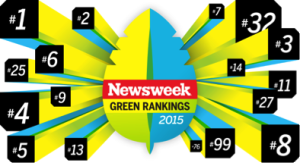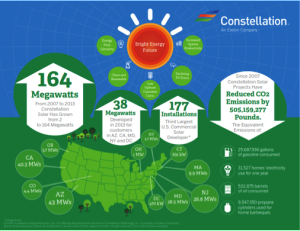
- Category:
Green Energy -
Last updated:
July 6, 2021
Exelon Ranks in the Top 5 Most Green Utility Companies in US
 The Newsweek Green Rankings are a globally renowned annual listing recognizing sustainability and environmental impact practices among the world’s largest publicly traded companies.
The Newsweek Green Rankings are a globally renowned annual listing recognizing sustainability and environmental impact practices among the world’s largest publicly traded companies.
With the Green Rankings for 2015 being released last week, Constellation is proud to announce that its parent company, Exelon, had another exemplary showing this year.
Exelon is proud to have ranked:
- No. 61 among the 500 largest publicly traded U.S. companies
- No. 105 among the 500 largest publicly traded companies worldwide, up from No. 116 in 2014
- In the top 5 among the 25 largest utility companies in the US
To a Greener Planet
Since its formation, Exelon has been committed to sustainability and environmental stewardship. The results:
- In 2014, more than 98 percent of the approximately 37.9 billion gallons of water used by Exelon-operated facilities per day was directly returned to the source.
- In conjunction with subsidiary Constellation, Exelon is the nation’s 12th largest wind energy producer and a major developer of solar energy.

- In 2014, Exelon was named to the Dow Jones Sustainability North America Index for the ninth consecutive year in recognition of its strong sustainability performance.
- Exelon was named in 2014 to CDP’s S&P 500 Climate Disclosure Leadership Index for reducing carbon emissions and addressing climate change.
- In 2014, Exelon increased its companywide-recycling rate to 69%.
- In 2014, Exelon helped customers save more than 7.6 million megawatt-hours of electricity through energy efficiency programs.
How Are the Newsweek Green Rankings Scored?
Two independent research companies — Corporate Knights Capital and HIP Investor — partner with Newsweek to analyze companies on eight specific environmental indicators, each of them scaled according to industry-type:
- Combined Energy Productivity – A calculation of revenue (used to scale company size) in relation to total energy consumption
- Combined Greenhouse Gas (GHG) Productivity – A calculation of revenue in relation to Greenhouse Gas (GHG) Emissions
- Combined Water Productivity– A calculation of revenue in relation to water use
- Combined Waste Productivity– A calculation of revenue in relation to waste generated
- Green Revenue Score – A percentage measurement of a company’s revenue that derives from “green” products or services
- Green Pay Link – A “yes/no” evaluation point that determines whether a company’s senior executive pay is linked to corporate environmental performance
- Sustainability Board Committee – A “yes/no” evaluation point that determines whether a company’s board of directors exhibits a structural commitment to environmental matters
- Audited Environmental Metrics – A “yes/no” evaluation point that determines whether the company had certain environmental metrics audited by a qualified third party in the previous year.
A more in-depth and technical breakdown of assessment methodology can be found here.
We Owe Our Success to You
This recognition is directly linked to our commitment to customers. As stated by Chris Gould, Exelon senior vice president and chief sustainability officer, “A major part of our business involves helping customers make smarter use of energy and investing in new and existing sources of clean energy.”




